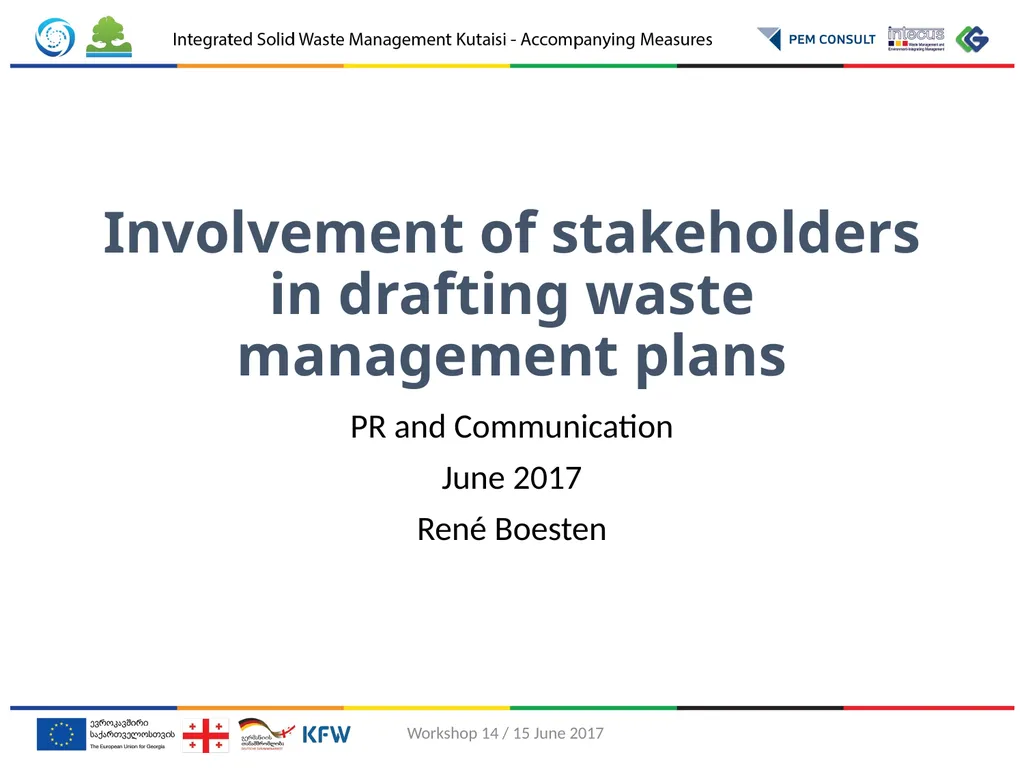
Author : giovanna-bartolotta | Published Date : 2025-05-29
Description: Involvement of stakeholders in drafting waste management plans PR and Communication June 2017 René Boesten Workshop 14 15 June 2017 Stakeholder involvement legal requirement: Waste management code Article 13, paragraph 3: Prior to theDownload Presentation The PPT/PDF document "" is the property of its rightful owner. Permission is granted to download and print the materials on this website for personal, non-commercial use only, and to display it on your personal computer provided you do not modify the materials and that you retain all copyright notices contained in the materials. By downloading content from our website, you accept the terms of this agreement.
Here is the link to download the presentation.
"Involvement of stakeholders in drafting waste"The content belongs to its owner. You may download and print it for personal use, without modification, and keep all copyright notices. By downloading, you agree to these terms.













